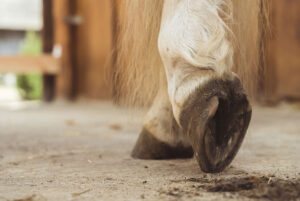Wildlife Disease: Contagious Critters
- Topics: Article, Biosecurity, Deworming & Internal Parasites, Eastern Equine Encephalitis (EEE), Equine Protozoal Myeloencephalitis (EPM), Leptospirosis, Lyme Disease, Other Skin Problems, Pigeon Fever & Dryland Distemper, Piroplasmosis, Rabies, Rodent & Pest Control, Salmonella, Strangles, Tetanus, Venezuelan Equine Encephalitis (VEE), Vesicular Stomatitis, West Nile Virus (WNV), Western Equine Encephalitis (WEE)
Diseases from other animals pose a constant threat to our horses. Disease-causing agents, or pathogens, lurk in local wildlife, fly overhead in birds, and lay in the next field inside cows peacefully chewing their cuds. These disease agents–whether fungi, bacteria, or viruses–are just waiting for the opportunity to cross over into a horse. The diseases vary in circumstance, severity, and methods of transmission. We turned to John Timoney, MVB, PhD, DSc, MRCVS, Keeneland Professor of Infectious Diseases at the Maxwell H. Gluck Equine Research Center in Lexington, Ky., to help explain the role other animals play in equine infectious disease.
How often do horses catch diseases from wild or domestic animals? Timoney says it depends on the conditions. "I don’t think you could come up with a percentage because these diseases are opportunistic." Outbreaks happen when the conditions are right, not just because the pathogens are present, which makes occurrences hard to predict.
What Affects Disease Transmission?
Geography plays a big part. For example, pseudotuberculosis is currently a problem in Oklahoma and Texas, says Timoney, "but we rarely see it here in Kentucky, and there are parts of the U.S. where you would never know it existed. So, it depends on what part of the country and even the time of year
Create a free account with TheHorse.com to view this content.
TheHorse.com is home to thousands of free articles about horse health care. In order to access some of our exclusive free content, you must be signed into TheHorse.com.
Start your free account today!
Already have an account?
and continue reading.
Related Articles
Stay on top of the most recent Horse Health news with


















